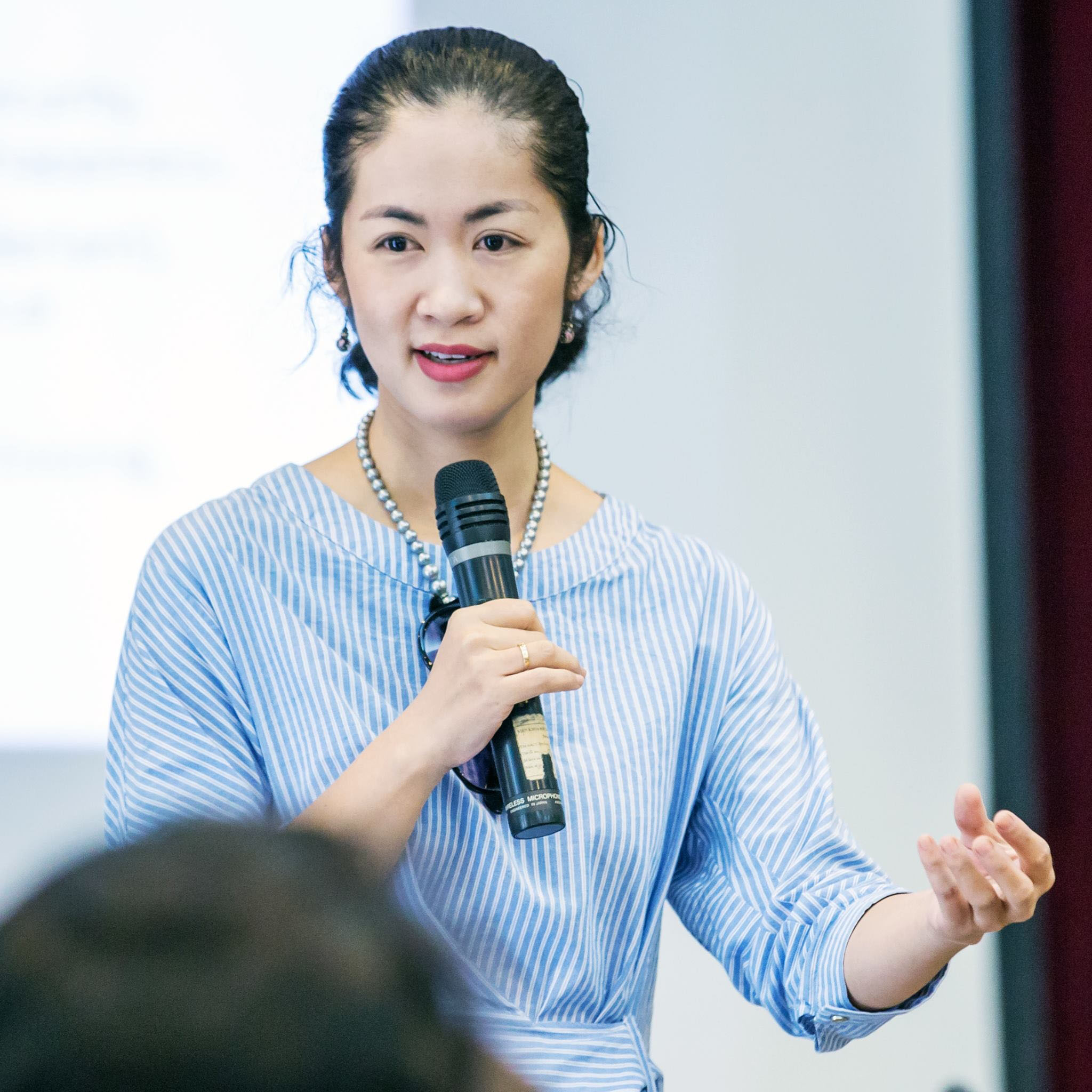“We all talk about digital future, digital aspiration, and the next better technology to change the world. But, when I talk with ordinary people on the ground of Vietnam, such as peasants, online petty traders, and rideshare workers, the future doesn't look that bright."
When people talk about digital technologies and advances within digital devices, platforms, apps and social media, it's typically in the context of the present and future – digital ambitions and targets and new digital technology advances that promise to revolutionise cultures and societies.
It's not often that we pause to consider the past and how the cultural history of a specific place shapes digital tech use. This is the work of Dr Giang Nguyen, one of the few scholars engaged in the question of ‘digital time passage’ in the context of Vietnam.
“Digital time passage means the lived experience of ordinary people at the intervention of digital technologies, including not just the platform, apps or social media but also the whole environment that has been intervened by digital transformations,” Dr Nguyen said.
A post-doctorate research fellow in Digital Cultures and Societies (DCS) at The University of Queensland (UQ), Dr Nguyen began her academic career in Vietnam.
Following an undergraduate and then a master's degree, she held a seven-year teaching post at Vietnam National University before completing her doctorate at UQ.
"My PhD was about television. I wrote a book about how post-war television shapes Vietnamese people's sense of belonging to the nation," Dr Nguyen said.
Throughout her PhD, it became clear to Dr Nguyen that the media landscape in Vietnam had changed vastly, as had the media study discipline.
“Everybody seemed to move toward digital studies, and changing fashion within the discipline led me to new research ideas on Vietnamese digital life.
“Such a change in research focus also allowed me to better suit the job market” she said.
Her doctorate and published book on television provided her with the groundwork, enabling her to move successfully to digital studies while keeping her lasting interest in the relation between media and everyday life.
“DCS is one of a few centres where a post-doc can do their own research. DCS provides its researchers the freedom to pursue the topics that they’re passionate about.”
“The position enables me to continue to do the research that is important to me about Vietnam.”
Elaborating on her current research, Dr Nguyen points to her recent journal article publications.
“My recent publications handle the question of how women and peasants interact with social media in Vietnam to manage their work and raise their voice, and in so doing, creating new rhythms of life.”
“The central focus of my postdoctoral research is the digital time passage.”
Dr Nguyen would like to question the overt focus on the future when people talk about digital technology.
“We all talk about digital future, digital aspiration, and the next better technology to change the world. But, when I talk with ordinary people on the ground of Vietnam, such as peasants, online petty traders, and rideshare workers, the future doesn't look that bright."
These conversations with those on the ground provided Dr Nguyen with the starting point into the inquiry of time.
“And I asked them why – why don't you see your future as part of the digital future, and they started to bring up all the past burdens that they have, such as the legacy of war or the problems of gender inequality and chronic unemployment.”
Dr Nguyen said that the focus on the lived experience of digital time not only exposes the unkept promises of a forward-facing vision that drives digital transformations, but it also reveals what technocratic promises often overlook: namely, the life-defining challenges that derive from developing countries’ fraught historical past.
“Ordinary people bring into their interactions with digital media their social history. It can be a positive thing, like their wisdom, insight, value and sometimes it's also their oppression, their traumas, their fear.
All of these are largely absent in a lot of discussion about digital transformation,” she said.
"Particularly in the Global South, when people talk about investing more in digital transformation, it needs to be grounded in the experience of time.”
Speaking about some interesting findings she has uncovered throughout her research so far, Dr Nguyen points to a two-year experience working with young Vietnamese mothers who sell food on Facebook to supplement their income.
"My research found that online mothers are trapped between the fast pace of online transactions and the slow growth of children.
More importantly, behind these mothers, there’s always a grandma or an aunty who do most of the manual toil so that the young mothers can go online and build their influential digital profile.
“My research showed how the invisible labour of those behind-the-scenes-ladies, as well as their wisdom about coping with lasting gendered inequality, enables young mothers to better navigate the digital world.”
Dr Nguyen said for these young mothers, the future is online, but they carry with them the wisdom of past generations.
“I've been chasing how the invisible labour that appears to be disconnected with digital technologies makes the digital future possible.
“Mothers and grandmothers are the backbone of digital economies."
And what impact does Dr Nguyen hope to have through her research?
“The best thing as a researcher that I can do is to bring about a very informed account of what's happening on the ground of digital transformation that people can refer to.”
Dr Nguyen doesn’t know if policymakers will look at this research, but if they do, she hopes that they will see that often their sleek technocratic plans are taken in a very different way – they're consumed or mobilised in sometimes completely the opposite way that they imagined.
“So, the aim is to bring some sort of informed dialogue between researchers on the ground, ordinary social cohorts, and policymakers."

Postdoctoral Research Fellow
UQ's Digital Cultures and Societies

